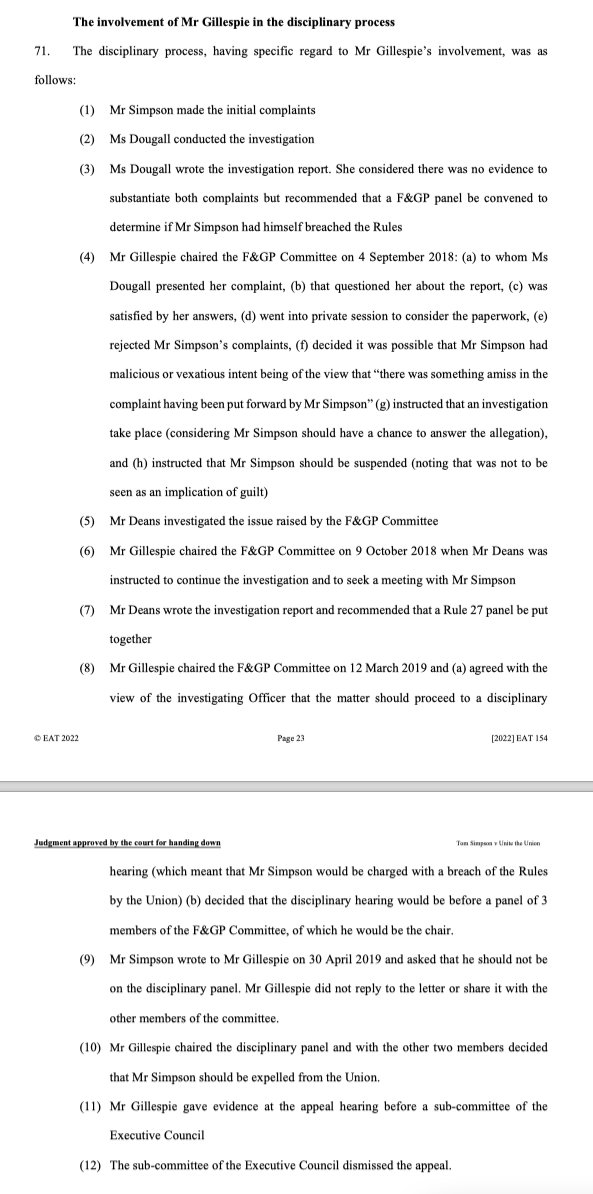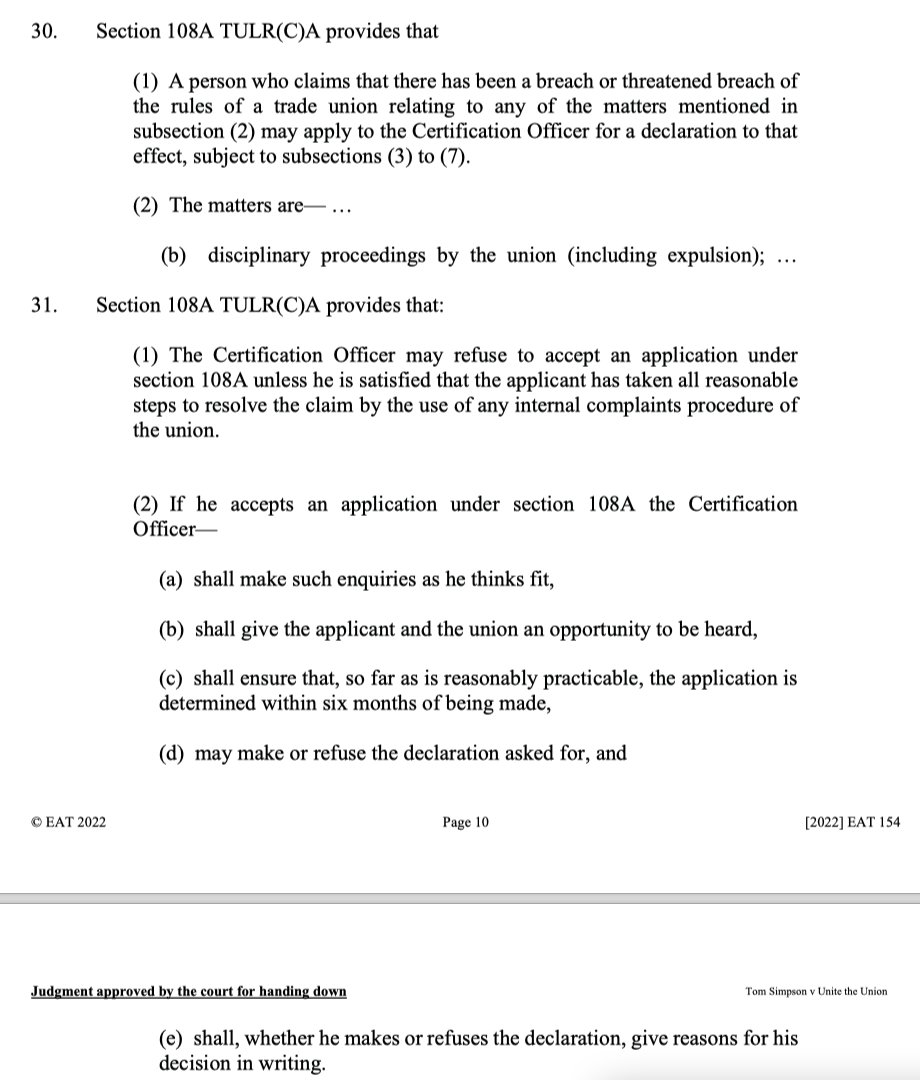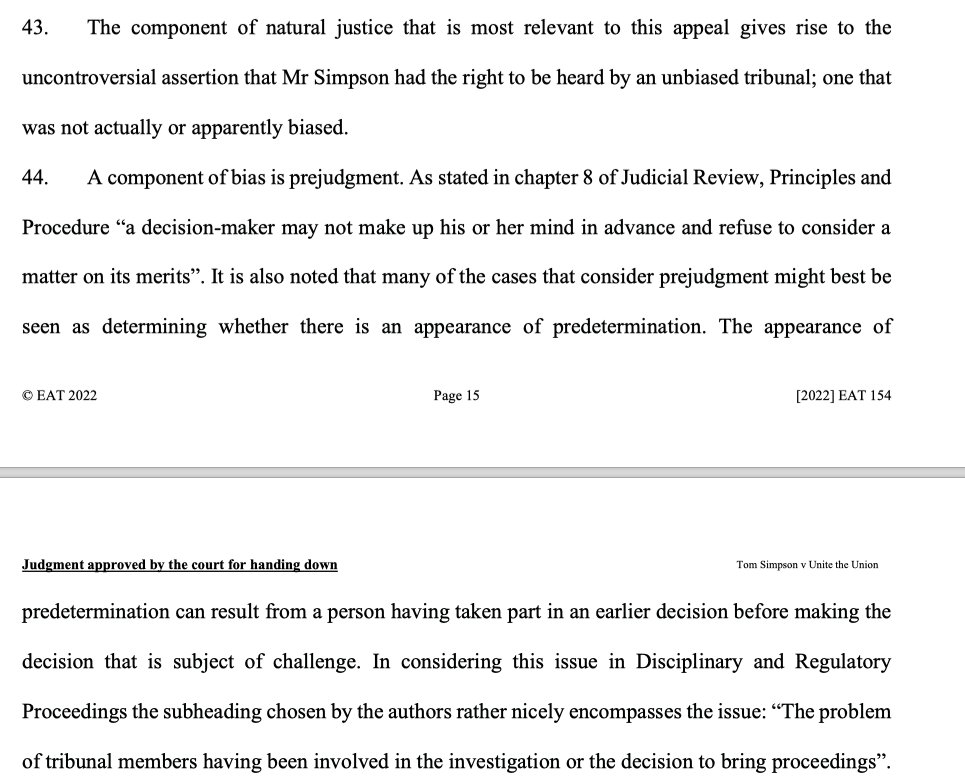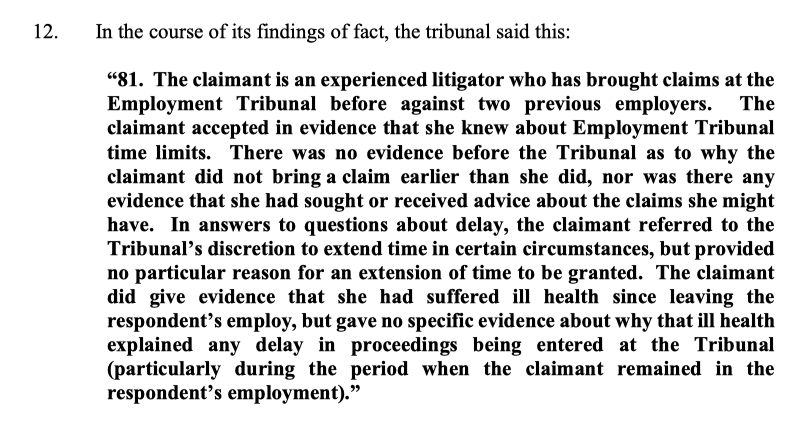
1/ Simpson v Unite: Certification officer erred when considering issues of natural justice in respect of a s.108A declaration application for breach of Union rules, by not directing herself correctly on the fair-minded & informed observer test.
bailii.org/uk/cases/UKEAT…
#ukemplaw
bailii.org/uk/cases/UKEAT…
#ukemplaw
2/ S appealed a certification officer's refusal to declare that he had been disciplined in breach of Unite's rules. S's complaint was a hearing officer, G, chaired the committee which raised the concerns, initiated investigations, suspended S & decided on holding a disciplinary. 

3/ S argued this was a breach of natural justice.
The relevant Unite rules include Rule 27, which lays out the circumstances in which disciplinary hearings are constituted and how they are to be heard. A direction of the Exec Council provides guidance on their application.

The relevant Unite rules include Rule 27, which lays out the circumstances in which disciplinary hearings are constituted and how they are to be heard. A direction of the Exec Council provides guidance on their application.


4/ The facts of S's case are, in brief, that he made complaints against a couple of colleagues. Those complaints weren't upheld, but the investigator considered they were made vexatiously. That was then investigated & ultimately found (in absentia) against S.
5/ S's application before the certification officer was brought under s.108A TULR(C)A, which allows an application for a declaration that there has been a breach of the rules of a trade union relating to disciplinary proceedings. 

6/ The certification officer found the disciplinary process to have been undertaken within the rules, noting that the chair of the disciplinary committee (the focus of S's complaint) didn't raise the initial concerns or undertake the investigation. 



7/ The Certification Officer also gave short shrift to S's arguments of bias resulting from the chair being affiliated to organisations linked to Unite to which the investigator & some of those S had complained about were also affiliated. 



8/ The EAT upheld the Certification Officer's decision.
HHJ Tayler noted S's natural justice argument focused on the right to be heard by an unbiased tribunal, & that the bias concerned here was that of prejudgment.
HHJ Tayler noted S's natural justice argument focused on the right to be heard by an unbiased tribunal, & that the bias concerned here was that of prejudgment.

9/ The EAT set out the relevant test for apparent predetermination - that of whether the fair-minded & informed observer would think there to be a real possibility of predetermination by the decision-maker (with that observer's attributed defined by Lord Hope in Helow). 

10/ HHJ Tayler warned against the temptation to analogise the level of impartiality required of an internal disciplinary officer with that of a judge in criminal or civil litigation, noting internal procedure can't be expected to be as fastidious as legal proceedings. 

11/ The EAT noted cases in which the courts had held there to be apparent bias where there was involvement of the individual or the organisation he/she chaired at multiple stages of a disciplinary process. 



12/ The EAT distinguished public regulatory bodies from the TU acting as a private body, holding this relevant to the degree of independence required. However, natural justice still applies & efforts should be made for some degree of separation even if all involved are TU members 

13/ Here, the EAT was concerned by how many stages of the process in which G had been involved, & also that when asked by letter by S to recuse himself he neither replied nor told other committee members about the request, but then chaired the disciplinary which expelled S 

14/ The certification officer hadn't directed herself properly on the fair-minded & informed observer test applicable to the complaint of whether it was in breach of natural justice for G to be involved at so many stages of the process & then to chair the disciplinary panel. 

15/ She had thus erred in law in her decision, and the EAT invited submissions on disposal, which will be the subject of a subsequent judgment.
• • •
Missing some Tweet in this thread? You can try to
force a refresh










